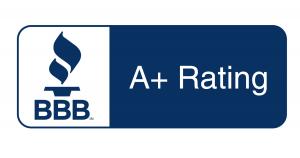Do You Have to Get Out of Your Car When Pulled Over?
You may have heard that if you’re pulled over by a police officer in Pennsylvania, you are not legally required to comply with every request or demand. But what if the officer asks you to get out of your vehicle?
Supreme Court rulings in two cases — Pennsylvania v. Mimms in 1977 and Maryland v. Wilson in 1997 — held that an officer who pulls you over for allegedly violating a traffic law can require you and any passengers to get out of the vehicle. In real-life situations, though, knowing what to do in the event of a police stop is not always clear.
If you’re pulled over, what you say and do can have a significant impact on what happens next and on any criminal charges that might be filed against you. If you see blue lights in your rear-view mirror, it’s important to understand police traffic stop procedures along with your rights and duties under the law.
What to Do if a Police Car Is Behind You
If you notice a squad car following you with its emergency lights or siren turned on, you should pull to the right and stop as soon as you can do so safely. Pulling over indicates your awareness of your surroundings and does not constitute an admission of guilt.
In addition, stopping as soon as possible can be helpful in determining exactly how — and where — an officer may believe you committed a traffic violation, which can aid in developing your defense.
Should You Get Out of the Car?
If you are pulled over, remain in your car unless the officer requests that you exit. In addition, you should wait to reach into your pocket, purse or glove compartment for your wallet, license and registration until the officer tells you to do so. Getting out of the vehicle prematurely or reaching for items in the car could be seen as signs that you might pose a threat to the officer.
If the officer asks you to get out of the car, however, you should do so. By not getting out of the car when instructed, you might be viewed by the officer as a threat of imminent danger.
An officer who believes you could pose a danger has the legal right to perform a pat-down search outside your clothing. The officer legally may retrieve any item encountered during the search that feels like a weapon. In addition, the officer can seize any suspicious item found during the search.
If there is a reasonable belief that you might be dangerous and might have weapons elsewhere, the officer can search inside your vehicle, including in the passenger area where weapons might be hidden.
Your Rights in a Traffic Stop in Pennsylvania
Most citizens are unclear on what rights they have in a traffic stop and what actions they should take to protect themselves.
Police officers undergo training to help them defuse tense situations, but in reality, officers do not always use that training effectively. In recent years, national news has included many reports of simple traffic stops that ended in a motorist being seriously hurt or killed by an officer.
If you are pulled over on suspicion of a traffic offense — including speeding, reckless driving or driving under the influence — it’s important to understand your rights. With that knowledge, you can determine in the moment if you safely can assert your rights or if you should obey an officer’s commands and work with an attorney after the fact. Your rights during a traffic stop include:
- Remaining silent. Whether you stay in your vehicle or the officer requests that you exit, you are required to provide certain information — including your name along with license, registration and insurance details. However, beyond providing basic details, you are not required by law to answer questions, and you can state that you choose not to answer. You can remain silent whether you’re temporarily detained or placed under arrest.
- Asking if you are free to go. If you have been stopped but not formally placed under arrest, you can ask if you’re free to leave the scene.
- Refusing a search. You can refuse a search of your person or your vehicle. However, a search still may be conducted if the officer believes that probable cause exists.
- Asking for an attorney. If you are arrested, you should ask to speak with an attorney immediately. If the stop is temporary, you may not be entitled to an attorney. However, if you are held for a lengthy period of time, you must either be released or placed under arrest.
Seek Counsel From an Experienced Criminal Defense Attorney
If you’ve been arrested following a traffic stop, work with a qualified criminal defense attorney who can help protect your rights. Contact the Office of DeLuca, Ricciuti & Konieczka for a consultation.









